Sep 9, 2016 By: rolen
The possibility of a woman becoming President for the first time in the nation’s 240-year history piqued our interest in various mileposts for women in YU’s timeline. Below are some “female firsts” at Yeshiva University, courtesy of the collections of Yeshiva University Archives.
The first woman to be awarded an honorary degree at Yeshiva was Dr. Martha Eliot in May, 1952. Dr. Eliot, along with Drs. Leo Davidoff and Julius Rogoff, received Doctor of Humane Letters degrees at a special convocation recognizing Nathaniel Goldstein, who was spearheading YU’s campaign to establish what would become the Albert Einstein College of Medicine. Dr. Eliot, a graduate of the Johns Hopkins University School of Medicine, had conducted pioneering research into the prevention of rickets in children, and had achieved many advances in pediatric medicine and public health. At the time of her award by YU, Dr. Eliot was Chief of the United States Children’s Bureau.
Just over a month later, the second honorary degree to a woman was awarded to Eleanor Roosevelt, who received the Doctor of Humane Letters degree as part of the University commencement exercises in June, 1952. Mrs. Roosevelt delivered the keynote address, another first for a woman at YU, speaking on “Education for World Peace”.
The 1952 commencement exercises were noteworthy for women for another reason, as they were first in Yeshiva’s history at which a woman received an academic degree. Esther Weiner, a 53 year-old widow, earned a Master’s in Social Group Work degree from the School of Education and Community Administration (SECA), a forerunner to what would in part become the Wurzweiler School of Social Work. Mrs. Weiner had worked for many years in social service agencies, and at the time of her degree was the Assistant Head Worker at Hamilton House, a Lower East Side settlement house providing local residents with social services and educational programming.
Academic instruction at YU had been largely a male domain from the founding of Yeshiva College for Men in 1928 and into the ensuing decades. In fact, the earliest record of a woman instructor throughout YU is that of Elizabeth Radinsky, who taught the Fundamentals of Social Work course at SECA from the inception of the school in Fall, 1948 into the 1950s. Her title remained throughout as “lecturer”, suggesting she was not on a tenure track. In Fall, 1953, SECA appointed Sophia Moses Robison as Visiting Professor of Social Work, which was the earliest female professor position found in the Archives. Professor Robison had conducted groundbreaking research documenting biases in reporting and defining youth behavior as “delinquent”. She taught at SECA for several semesters during the 1950s.
Opportunities for tenure-track women instructors advanced with the founding of Stern College for Women in Fall, 1954. Those who were on the faculty in the early period include Dora Bell (French), Beatrice Friedland (Biology), Jean Jofen (German), and Ruth Kisch-Arndt (Music).
At Yeshiva College, the earliest reference to a female professor was Cecile Feder (Math) in 1954, but whether she actually taught a course or not could not be confirmed. It is known that she was appointed later that year as the Registrar of Stern College for Women and served in this role during the College’s first year. The earliest confirmed female instructor at Yeshiva College was Ida Dobkin (Chemistry), whose title was listed as “tutor”, beginning in 1952. The parameters of this ambiguous title are not known, and it was only found in the Chemistry Department. Beginning in Fall, 1959, Dobkin advanced to “instructor”, a role she would remain in until retiring in 1990.
Undoubtedly the first full-time female holding a full professorship at YU was Berta Scharrer, who was appointed Professor of Anatomy at AECOM at the school’s founding in 1955, along with her husband Ernst, who served as the department’s Chair. The Scharrers were eminent non-Jewish German scientists who fled Germany in 1937 to protest Hitler’s ideology, leaving their colleagues and research materials behind and beginning anew in the United States. They were instrumental in the development of the discipline of neuroendocrinology.
Regarding academic leadership milestones beyond instruction, Dr. Adelaide Jablonsky was named Assistant Dean of YU’s Graduate School of Education in 1963, becoming the first female in a deanship position with academic responsibilities. The first woman to ever hold the title of Dean at the University, although it was not an academic position, was Elizabeth Isaacs, who was appointed Dean of Students at Stern College for Women in 1959 and served until 1967. Dean Isaacs had been involved with SCW since its inception, as Director of Student Activities and its head of Student Advising. Isaacs was a trailblazer in other ways – as a founder of the Women’s Branch of the Orthodox Union and a member of its Kashruth Commission. She was married to Moses Isaacs, who was Dean of Yeshiva College from 1942-1953. The first female to serve as Dean of a school was Karen Bacon, who was appointed Dean of Stern College for Women in 1977, and served in that role until she became the Dean of Undergraduate Faculty of Arts and Sciences, resulting from the unification of the undergraduate faculties in 2015. Upon her appointment to the faculty of Yeshiva College in 1975, Dean Bacon had also become the first Stern College alumna to be granted a full-time faculty position at Yeshiva College.
Also in 1977, another “first” was the appointment of Dr. Blanche Blank as Vice President of Academic Affairs, becoming the first woman Vice President at the University. The position was largely analogous to the Provost in the current University structure, making Dr. Blank Yeshiva’s chief academic officer, responsible for day-to-day academic functioning as well as evaluation and long term planning. She served in this role until 1981, after which she taught Political Science at both Yeshiva College and Stern College until 1993.
Women on the University’s Board of Trustees did not occur until 1988, when E. Billie Ivry became the first member. Ivry, who became successful as a stockbroker, first encountered investing following high school while serving as the personal secretary to a business executive who taught her to manage his financial portfolio. Her philanthropy is apparent throughout YU, where she endowed the Rebecca Ivry Department of Jewish Studies at Stern College, as well as scholarship funds, research fellowships, a chair in Jewish History, and various physical spaces, among other contributions. Ivry received an honorary doctorate at the 1987 Hanukkah Dinner.
AECOM predated the overall University Board by over 20 years with the naming of Blanche Etra to its Board of Overseers in 1965. The name Etra is well known in Jewish philanthropy, typically due to the activities of lawyer brothers Harry (husband of Blanche) and Max, who were Jewish communal leaders during the mid-20th century. Max served as longtime Trustee and Chairman of the Board of YU. Despite this pedigree by marriage, Blanche was in her own right a luminary in numerous professional and philanthropic endeavors. She received her J.D. from Columbia University in 1938 at the age of 24, and worked in the profession for several years before shifting her focus to philanthropy while still working part-time at her husband’s and brother-in-law’s law firm. She founded the National Women’s Division of the Albert Einstein School of Medicine in 1953, raising huge sums for it and drawing people such as Eleanor Roosevelt and Rose Kennedy as supporters of the newly formed medical school. Etra was a founding board member of the Cardozo School of Law. She was awarded an honorary degree at Yeshiva’s Commencement Exercises in 1987.
Women leaders such as these helped pave the way for those who followed them.
Posted by Deena Schwimmer
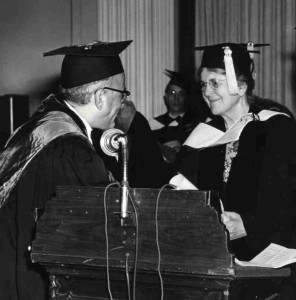 Dr. Martha Eliot Dr. Martha Eliot |
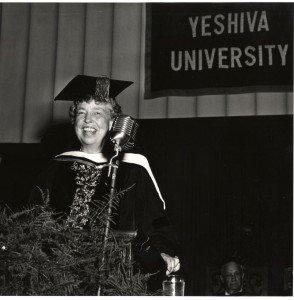 Eleanor Roosevelt Eleanor Roosevelt |
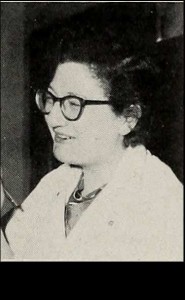 Mrs. Ida Dobkin Mrs. Ida Dobkin |
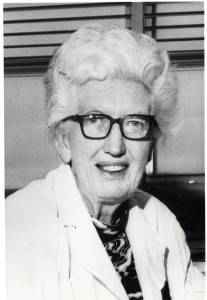 Professor Berta Scharrer Professor Berta Scharrer |
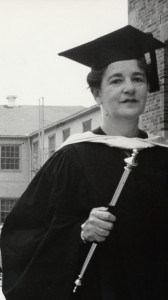 Dean Elizabeth Isaacs Dean Elizabeth Isaacs |
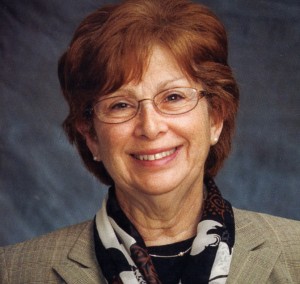 Dean Karen Bacon Dean Karen Bacon |
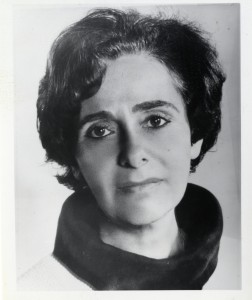 Dr. Blanche Blank Dr. Blanche Blank |
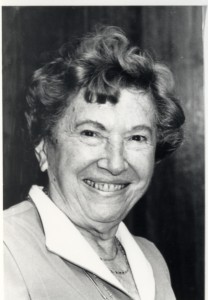 E. Billie Ivry E. Billie Ivry |
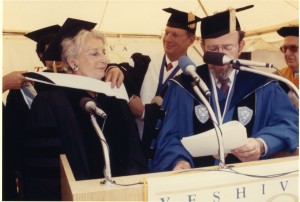 Blanche Etra Blanche Etra |
